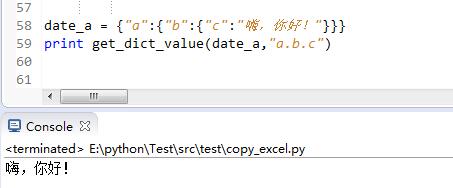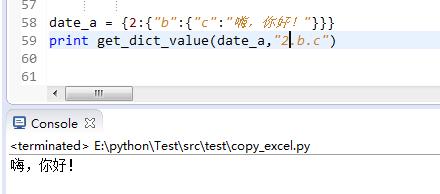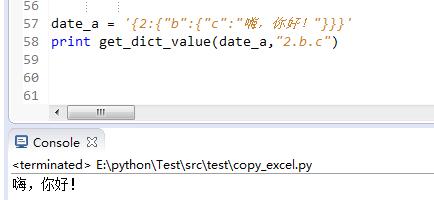接口自动化多层嵌套的json数据处理
最近在做接口自动化测试,响应的内容大多数是多层嵌套的json数据,在对响应数据进行校验的时候,可以通过(key1.key2.key3)形式获取嵌套字典值的方法获取响应值,再和预期值比较
def get_dict_value(date, keys, default=None):
#default=None,在key值不存在的情况下,返回None
keys_list = keys.split('.')
#以“.”为间隔,将字符串分裂为多个字符串,其实字符串为字典的键,保存在列表keys_list里
if isinstance(date,dict):
#如果传入的数据为字典
dictionary = dict(date)
#初始化字典
for i in keys_list:
#按照keys_list顺序循环键值
try:
if dictionary.get(i) != None:
dict_values = dictionary.get(i)
#如果键对应的值不为空,返回对应的值
elif dictionary.get(i) == None:
dict_values = dictionary.get(int(i))
#如果键对应的值为空,将字符串型的键转换为整数型,返回对应的值
except:
return default
#如果字符串型的键转换整数型错误,返回None
dictionary = dict_values
return dictionary
else:
#如果传入的数据为非字典
try:
dictionary = dict(eval(date))
#如果传入的字符串数据格式为字典格式,转字典类型,不然返回None
if isinstance(dictionary,dict):
for i in keys_list:
#按照keys_list顺序循环键值
try:
if dictionary.get(i) != None:
dict_values = dictionary.get(i)
#如果键对应的值不为空,返回对应的值
elif dictionary.get(i) == None:
dict_values = dictionary.get(int(i))
#如果键对应的值为空,将字符串型的键转换为整数型,返回对应的值
except:
return default
#如果字符串型的键转换整数型错误,返回None
dictionary = dict_values
return dictionary
except:
return default
运行结果:
一:字典类型数据。
二:字典类型数据,包含的键为数字。
三:json类型的字符串。
=============================================================
有个朋友分享过这段代码,大家可以试试。
class obj(object):
def __init__(self, d):
for a, b in d.items():
if isinstance(b, (list, tuple)):
setattr(self, a, [obj(x) if isinstance(x, dict) else x for x in b])
else:
setattr(self, a, obj(b) if isinstance(b, dict) else b)
d = {'a':1, 'b':{'c':2}, 'd':[{'e':1}]}
res = obj(d)
print res.a
print res.b.c
print res.d[0].e





